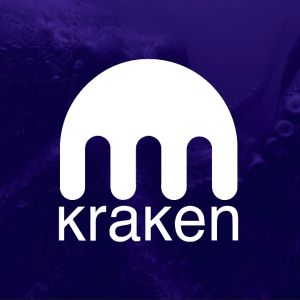Kraken introduces local currency funding in Argentina (ARS) and Mexico (MXN)
3 min read
Kraken, a major cryptocurrency exchange, has just expanded its services in Latin America by introducing local currency funding options in Argentina and Mexico, two of the region’s most active crypto markets. The expansion aligns with the company’s ongoing commitment to improving its reputation as a trusted, compliant, and localized infrastructure to support crypto adoption across the globe. 🇦🇷 Argentina just unlocked the mighty Kraken. Now live: → ARS deposits via local rails → VASP-registered with CNV → 350+ assets, clean FX, full access In a market where inflation pushed +200% in 2023, crypto isn’t just a nice to have, it’s a necessity. pic.twitter.com/QXSxYYqHwR — Kraken (@krakenfx) July 10, 2025 Kraken wants to fill a demand for alternative economic solutions in the LATAM region The new integrations will allow clients in Argentina and Mexico to deposit their local currencies — ARS and MXN — via trusted domestic payment methods, allowing them faster, simpler access to Kraken’s entire suite of crypto services. “With local rails and regulatory clarity in place, Kraken is uniquely positioned to help clients in both countries access the global crypto economy with the trust, security and ease they deserve,” Mark Greenberg, Global Head of Consumer, said . The deposits are automatically converted to US dollars at what is supposed to be competitive and transparent foreign exchange rates, thereby eliminating the need for international wire transfers or third-party apps. Also, within Argentina, Kraken is now officially registered as a Virtual Asset Service Provider (VASP) with Argentina’s Comisión Nacional de Valores (CNV), which means it can now operate in full compliance with local regulations. As for why Kraken chose the markets in Argentina and Mexico for its expansion, it highlighted the growing importance of crypto in both regions. For example, Argentina has had to deal with high inflation rates, and crypto — particularly stablecoins — has become crucial to saving and sending money for Argentines. Mexico is in a better position; regarded as a regional powerhouse for crypto activity, it is at the forefront of blockchain innovation, dollar-denominated demand, and retail adoption. Both markets together represent millions of current and future crypto clients who Kraken knows will need localized tools to fully participate in the ecosystem. Kraken expands its offering into a peer-to-peer payments app Since the U.S. Securities and Exchange Commission (SEC) dismissed its civil lawsuit against Kraken, the crypto exchange has been on smooth sailing in terms of expanding its services across the globe. The firm called the dismissal a turning point for cryptocurrency, marking an end to a “wasteful, politically motivated campaign” that started during the Biden administration and hindered not only innovation but also investment. “Kraken’s business is thriving. We’re launching more new products than ever before, driving strong revenue growth, and rapidly expanding across our entire product portfolio—including through the agreement to acquire NinjaTrader, announced earlier this year,” the spokesperson said. Its expansion in Argentina and Mexico comes days after the exchange launched a peer-to-peer payments app that enables the sending and receiving of funds – in both cryptocurrency and fiat currency – across more than a hundred countries. The move has been touted as a bid to expand Kraken’s offerings beyond its digital asset trading business while placing the firm in direct competition with existing tradfi payment systems like PayPal, Venmo, and Block’s CashApp. In the future, Kraken has plans to launch several products via the new payment app Krak . The products will include physical and virtual cards as well as pay-in-advance services like loans, according to the company. Cryptopolitan Academy: Coming Soon – A New Way to Earn Passive Income with DeFi in 2025. Learn More

Source: Cryptopolitan



